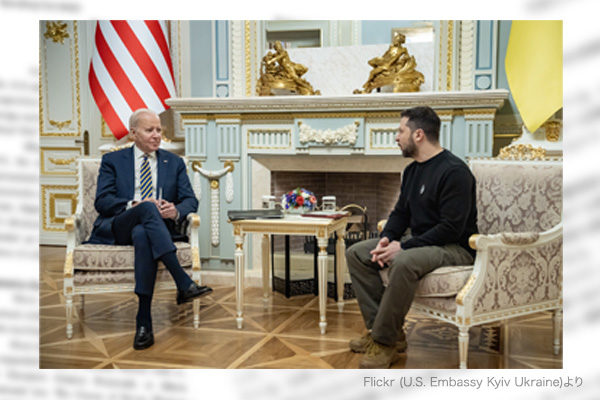Just before fiscal 2023 ended at midnight on September 30, the U.S. Congress passed a stopgap budget through mid-November, which President Joe Biden immediately signed into law. Most Americans may have been relieved as the passage averted a partial government shutdown. However, additional Ukraine aid worth $24 billion requested by the Biden administration to the Congress was dropped. House Republican Speaker Kevin McCarthy is said to have made the decision with the intention of Republican hardliners. As every move by the United States as the core of Western support for Ukraine is linked to Ukraine’s national fortunes, the drop will have a not small impact on some allies that are beginning to show “Ukraine fatigue.”
Second thoughts about aid growing among Republicans
Ukraine aid is approaching a major turning point. The additional aid was agreed on between Biden and Ukrainian President Volodymyr Zelensky who visited Washington on September 21. It must be revived in some form, but negative argument is widely rising in the U.S.
As if to coincide with Zelensky’s Washington visit, six Senators and 23 House members from the Republican Party submitted a written opinion to the Office of Management and Budget director. They frankly asked if U.S. Ukraine aid represented a blank cheque, if Ukrainian forces were smoothly advancing against the Russian troops, and if U.S. budget deficits should be left untouched further. A recent Wall Street Journal poll found that 62% of Republican voters thought the U.S. has done too much to support Ukraine.
Last December when Zelensky chose the U.S. as his first foreign destination after the Russian invasion, he was enthusiastically welcomed in Washington. During the latest visit, however, Speaker McCarthy did not appear to greet him in the House. Ukraine’s request for an opportunity for Zelensky to deliver an address to a joint session of the House and Senate this time again was rejected.
In the Canadian capital of Ottawa Zelensky visited in the wake of his U.S. tour, he received a standing ovation at a joint session of the Senate and the House of Commons. How did he interpret such different reactions in the two capitals? It is true that Biden told Zelensky the U.S. would continue to be with Ukraine. But the provision of ATACMS surface- to-surface missiles with a range of 300 kilometers, Ukraine’s most coveted weapon, was not announced on the spot.
Bailing out an aggressor will change international order
Disagreements in the U.S. have become clearly reflected in foreign policy. What will U.S. allies that have kept step with the U.S. on Ukraine do if U.S. policy wavers even slightly?
In Poland where the government has been one of the friendliest to Ukraine, Prime Minister Mateusz Morawiecki became angry at the confrontation over the influx of Ukrainian grain into the domestic market and said he would no longer send weapons to Ukraine. President Andrej Duda immediately corrected the remark, noting that the weapons meant new weapons Poland is buying for itself. However, it is undeniable that the quarrel gave the international community the impression that the relationship between the two countries was only at this level.
Worse still, any change in U.S. policy on Ukraine would bail out Russia and fatally wound Ukraine. It will inevitably trigger a change in international order.
Tadae Takubo is Vice President, Japan Institute for National Fundamentals, and a professor emeritus at Kyorin University.


